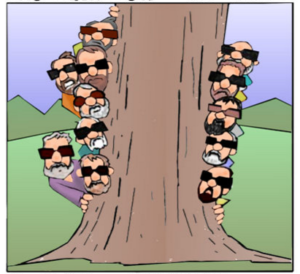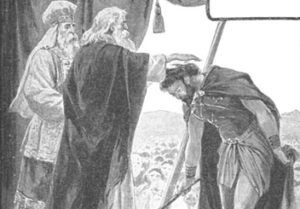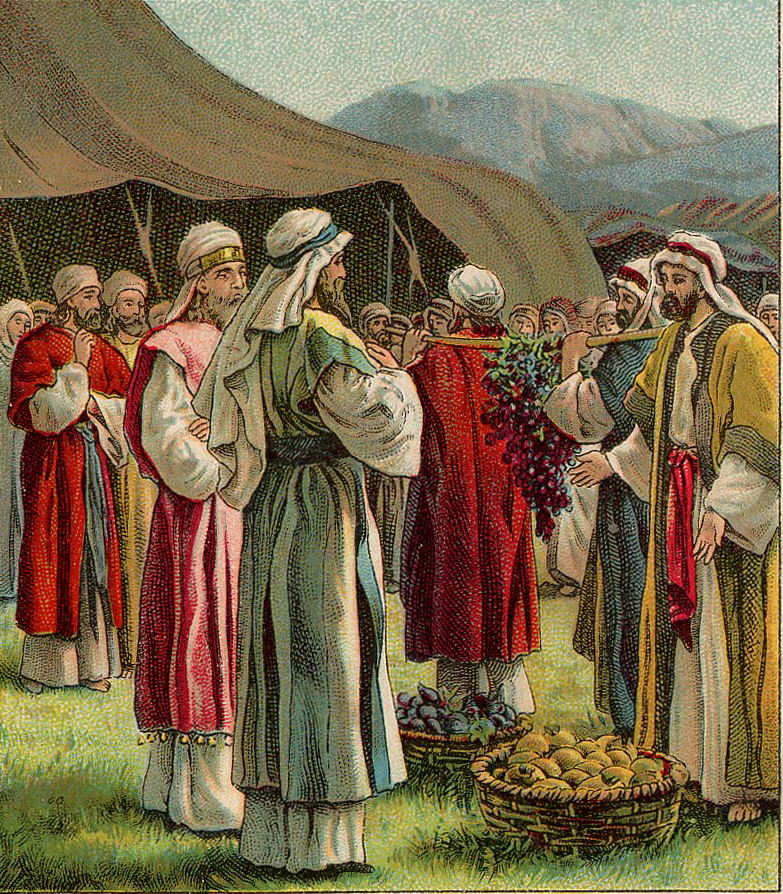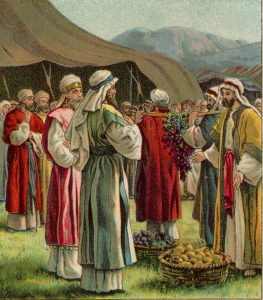We begin this week with a very hearty and special mazel tov to our dear friends Estie and Yussy Silverstein upon the wedding last night of their beautiful daughter Talia Rivka, a tzadekes mamish, to Shimon Danieli, he, the son of Nurit & Yitzchak Danieli from Toronto, Canada. May they enjoy many decades of blissful marriage. Mazel tov to Talia’s grandparents, Arlene & Bernie Silverstein of Woodmere, N.Y. and to Joyce & Harvey Kolton, formerly of Montreal and now of Lawrence. Mazel tov to Shimon’s entire extended family.
And a hearty mazel tov as well to our long time friends Chani and Shimie Klein upon the engagement of their amazing son Judah -whom we had the pleasure of hosting in our home for many years- to Shiffy Weinberger, daughter or Horav Moishe & Rebitzen Myrna Weinberger, he the esteemed Rav of Congregation Aish Kodesh in Woodmere. Mazel tov as well to Sara and Moishe Leifer and Bella & Anshi Klein, Judah’s grandparents. Big mazel tov wishes as well to the entire extended Weinberger & Schall families. May Judah and Shiffy be zoiche to build a great life together.
Can bad people unduly influence good people?
Just last week, the Oisvorfer was lamenting how week after week, as he reviews the upcoming parsha, he seeks guidance from above for an interesting topic, one he hasn’t covered before. Though our sages tell us that there are at least 70 ways to darshan (interpret) each word in the heylige Toirah, mistama more, the Oisvorfer is kimat running dry here in year six. Ober, as stated just last week, the RBSO is great! And this week, mamish out of nowhere, He came through again. It happened like this. Last week, the Oisvorfer was having a shtikel back and forth email exchange with a prominent rabbi over whether or not good people can be negatively influenced and affected by bad people. He suggested yes. The exchange was mamish bashert: this very topic plays out in this week’s parsha of Shelach which is zicher one of the saddest and most depressing of all in the heylige Toirah.
 Shelach recounts the myseh (saga) of the miraglim (scouts/spies) sent out by Moishe to reconnoiter the Promised Land in advance of the planned entry and occupation by the Yiddin. It was promised by the RBSO to zeyda Avrohom over 400 years back. The rabbi’s comment and thoughts on the influence of bad people over good, is mamish timely. Avada you all know, even those who were daydreaming or throwing spitballs at the rebbe during class, or stam roaming the hallways, that 10 of the 12 miraglim returned from their mission with a shtikel negative report about the Land. Their oral presentation included some editorializing and loshoin horo (disparaging remarks), and caused the Yiddin to become frightened. They began to cry and suggested they would have been far better off dying in Mitzrayim. They called for new leadership and a return to Egypt. You hear this? After 210 years of bitter slavery and one year in the midbar, where they were eye witnesses to a series of daily open miracles, all it took was for 10 scouts to orally deliver their distorted findings and the Yiddin were mamish tzibrochein? Shoin, we have previously covered this entire myseh in great detail and avada, as always, you should (after reading this review) stop what you’re doing and go directly to the archives at www.oisvorfer.com. We have previously posted many gems on this parsha.
Shelach recounts the myseh (saga) of the miraglim (scouts/spies) sent out by Moishe to reconnoiter the Promised Land in advance of the planned entry and occupation by the Yiddin. It was promised by the RBSO to zeyda Avrohom over 400 years back. The rabbi’s comment and thoughts on the influence of bad people over good, is mamish timely. Avada you all know, even those who were daydreaming or throwing spitballs at the rebbe during class, or stam roaming the hallways, that 10 of the 12 miraglim returned from their mission with a shtikel negative report about the Land. Their oral presentation included some editorializing and loshoin horo (disparaging remarks), and caused the Yiddin to become frightened. They began to cry and suggested they would have been far better off dying in Mitzrayim. They called for new leadership and a return to Egypt. You hear this? After 210 years of bitter slavery and one year in the midbar, where they were eye witnesses to a series of daily open miracles, all it took was for 10 scouts to orally deliver their distorted findings and the Yiddin were mamish tzibrochein? Shoin, we have previously covered this entire myseh in great detail and avada, as always, you should (after reading this review) stop what you’re doing and go directly to the archives at www.oisvorfer.com. We have previously posted many gems on this parsha.
The bottom line: it appears to the Oisvorfer that the Yiddin were not quite ready for prime time. They were a weak and fickle people. This was not the first time since redemption they had in mind to return to Mitzrayim and slavery. With every challenge, their first reaction was to go back. Though the events in our parsha take place in year two since redemption, little has changed. People who have been enslaved for many years, or otherwise psychologically broken and downtrodden need time -decades and generations, in certain cases- to shake off the psychological shackles of slavery. And guess what? The RBSO avada knew this about His Chosen People. Seemingly, this generation was not Land worthy. Fartig! And efsher for that reason, the RBSO acquiesced to the spy mission. Avada He knew its outcome. He is the RBSO: He knows all. In the end, and as we have stated in the past, it was all part of the master plan. It was efsher the initial plan to enter the Land shortly after redemption, ober the RBSO quickly chapped from their behavior that His people were amateurs and not prime time players. Nation building would take a total of 40 years and even then, only the next generation of males would be Land worthy. This generation not. They were not quite ready to live independently. They would likely not survive without the guidance of the a’nanay hokovod (clouds of glory) to guide them day and night, without the daily supply of magic mun food, and without all the other miracles the RBSO was performing for them.
Ober the question for today is azoy: We all recall that a total of 12 miraglim were sent on the mission. Taka, that’s what the heylige Toirah tells us, ober and not surprisingly, there is an opinion held by rebbe Akiva, found in the heylige Gemora (Soita) which tells us that davka there were 24 miraglim. There were? Did each take along a female companion, ver veyst? Ober doesn’t the text of the heylige Toirah tell us there were but 12? It does! So what? Who says rebbe Akiva cannot have an opinion that differs from the text? Everyone has opinions. His is based on the words -seemingly doubled- of the text (Bamidbar 13:2) which state “Ish Echod, Ish Echod l’matey Avoisof” (one person, one person from his father’s tribe), and because the language appears to be unnecessarily doubled, he deduces that efsher there were 24. Shoin, whether there were 12 or 24, the outcome was the same. We all avada recall that but 2 of them, Kolave ben Yifuna and Hoshsaya (Yihoishua) bin Nun, were the good guys. Following the negative report from the group of 10, Kolave spoke passionately and positively about the Land. The other good guy, Yihoishua, was at first silent but did eventually (when a revolt seemed imminent) join with Kolave. If there were 12 others, they were either silent, or, the text does not address what they said.
 Myriad midroshim wax fancy on just how davka these two were able to withstand the pressures of the other 10. In fact there is more medrish on this one point then on the rest of this rich parsha which includes the mitzva of hafroshas challah, tzitzis, and the shabbis wood gatherer. One medrish will tell us that Kolave turned good only after he went directly to Chevroin to daven and prostrate himself at the kivorim (gravesites) of our forefathers. There he supplicated the heylige Ovis to intervene on his behalf. Taka such a trip continues to inspire many ‘ad hayoim hazeh’ (until today); at least for a few minutes while they are posing for selfies. Seemingly they inspired him and also strengthened his resolve to withstand the pressure being applied by the others who zicher wanted to show unity during their reporting. We all know (from the heylige Toirah itself), that Moishe changed the name of Hoshayah to Yihoishua by adding one letter, the ‘yud’ to his name. He wanted the first two letters -the yud and hey- to spell out one of the RBSO’s names. And what he meant was that ‘Ko-Yoshiacho (the RBSO should save you) from the plot which somehow Moishe knew about, or, perceived through ruach hakoidesh (divine inspiration) to be unfolding. As to why Moishe did not abort the mission knowing its outcome in advance, ver veyst? As to why Moishe did not individually charge the others with special blessings or names changes, ver veyst? There are at least a few unanswered questions. The answer to most of them is azoy: it was all part of the master plan, the will of the RBSO. Let’s not forget that we are but puppets in His theater. Perhaps the Land wasn’t quite ready, ver veyst.
Myriad midroshim wax fancy on just how davka these two were able to withstand the pressures of the other 10. In fact there is more medrish on this one point then on the rest of this rich parsha which includes the mitzva of hafroshas challah, tzitzis, and the shabbis wood gatherer. One medrish will tell us that Kolave turned good only after he went directly to Chevroin to daven and prostrate himself at the kivorim (gravesites) of our forefathers. There he supplicated the heylige Ovis to intervene on his behalf. Taka such a trip continues to inspire many ‘ad hayoim hazeh’ (until today); at least for a few minutes while they are posing for selfies. Seemingly they inspired him and also strengthened his resolve to withstand the pressure being applied by the others who zicher wanted to show unity during their reporting. We all know (from the heylige Toirah itself), that Moishe changed the name of Hoshayah to Yihoishua by adding one letter, the ‘yud’ to his name. He wanted the first two letters -the yud and hey- to spell out one of the RBSO’s names. And what he meant was that ‘Ko-Yoshiacho (the RBSO should save you) from the plot which somehow Moishe knew about, or, perceived through ruach hakoidesh (divine inspiration) to be unfolding. As to why Moishe did not abort the mission knowing its outcome in advance, ver veyst? As to why Moishe did not individually charge the others with special blessings or names changes, ver veyst? There are at least a few unanswered questions. The answer to most of them is azoy: it was all part of the master plan, the will of the RBSO. Let’s not forget that we are but puppets in His theater. Perhaps the Land wasn’t quite ready, ver veyst.
The bottom line: Moishe’s plan worked. Yihoishua, we are taught, was a quiet humble person. He was Moishe’s talmid muvhok (star student), always at his side, efsher taka a candidate to be taken advantage of, and negatively influenced by rogue characters with stronger personalities. Somehow he was not. One medrish will tell us that Moishe was fearful for Yihoishua’s personal safety. Moishe knew that Yihoishua would not idly sit by while the miraglim were conspiring against the RBSO and His Promised Land. After all, he was Moishe’s right hand and would zicher advocate against their plot. What Moishe meant by his name change, was that the RBSO should keep him safe.
Kolave too, even in the face of ten strong-minded men who chose to see and report bad, found a way to withstand the mob mentality and be the lone voice of reason. So impressed was the RBSO with Kolave, he merited a special shout-out. When the RBSO decreed that the current generation of men were doomed to die in the midbar, where their carcasses would lie, He stated (Bamidbar 14:24) azoy:
| 24. But as for My servant Caleb, since he was possessed by another spirit, and he followed Me, I will bring him to the land to which he came, and his descendants will drive it[s inhabitants] out. | כדוְעַבְדִּי כָלֵב עֵקֶב הָיְתָה רוּחַ אַחֶרֶת עִמּוֹ וַיְמַלֵּא אַחֲרָי וַהֲבִיאֹתִיו אֶל הָאָרֶץ אֲשֶׁר בָּא שָׁמָּה וְזַרְעוֹ יוֹרִשֶׁנָּה: |
He was the man. A few pisukim later, where the RBSO states that all but Kolave and Yihoishua will perish and that only they would make it across the river and into the Land, there too, Kolave was top billed. Ober why? Was Kolave more vulnerable to outside influences and therefore greatly lauded for withstanding the influence of the bad guys?
With Yihoishua and Kolave in mind, says the Oisvorfer azoy: his rabbi chaver, whom he holds in very high esteem, and who holds that bad people can and do influence good people, and the Oisvorfer, who agrees that at times it may be so, but not always, and zicher there are exceptions, can both be correct. Ober how? Shoin: it’s avada the case that certain good and righteous people, can at times come under influence of bad people. Grada, even rabbis can and do come under the influence of bad people. Especially if the bad people, or a single person, has and give lots of money to the rabbi or his causes. Ober, it’s also emes that this is not universally emes. Shoin, a little humor, why not?
 Seemingly, Moishe was taka somewhat worried about his student Yihoishua. As to why Moishe wasn’t concerned about the others and why he didn’t daven for them to come back with a glowing report about the Land, ver veyst? The bottom line is that he did not. Nor did he worry much about Kolave. Then again, we need to recall that Moishe knew and was comfortable with Kolave who was his brother-in-law (Miriam’s husband). And let’s avada recall that just last week as the parsha was closing, we learned that Miriam was punished with Tzora’as (some form of leprosy) for speaking loshoin horo (badmouthing) about her brother Moishe, and was, as a result, sent out of the machneh (encampment). Moishe was a genius and knew that Kolave mistama missed being without Miriam while she healed and would therefore chap that loshoin horo had immediate consequences. Shoin, Kolave was on his best behavior.
Seemingly, Moishe was taka somewhat worried about his student Yihoishua. As to why Moishe wasn’t concerned about the others and why he didn’t daven for them to come back with a glowing report about the Land, ver veyst? The bottom line is that he did not. Nor did he worry much about Kolave. Then again, we need to recall that Moishe knew and was comfortable with Kolave who was his brother-in-law (Miriam’s husband). And let’s avada recall that just last week as the parsha was closing, we learned that Miriam was punished with Tzora’as (some form of leprosy) for speaking loshoin horo (badmouthing) about her brother Moishe, and was, as a result, sent out of the machneh (encampment). Moishe was a genius and knew that Kolave mistama missed being without Miriam while she healed and would therefore chap that loshoin horo had immediate consequences. Shoin, Kolave was on his best behavior.
The bottom line: though surrounded by 10 miraglim who were determined to disparage the Land and taka did so, Kolave, even without a name change from Moishe, withstood them. He alone argued in favor of conquering the Land. So much so that he put his life in danger. The heylige Toirah will recount that the Yiddin (we don’t know which ones) suggested to kill him and Yihoishua. Avada there is a machloikes (disagreement) as to who the real intended victims were. Some argue that they wanted to kill Aharoin and Moishe, say it’s not so please.
Ober what do we learn from all this? There are good people who can withstand the surroundings of bad ones. They are not influenced to go rogue. Grada, at times, it’s farkert (just the opposite): so strong are the personalities of the good guys, they can mamish turn bad people into ba’alay tshuva (penitents). Zicher not always; it has however been known to happen. Shoin, case closed.
Shoin, let’s close out this short review with one more thought. How was it taka that the RBSO decided that an entire generation of over 600,000 men who were recently counted, should be doomed to death for their reactions to but 10 scouts, all good men, who were handpicked by Moishe for this mission? Nu, that’s taka a good kasha; it appears that this was a compromise. The heylige Toirah will tell us that the RBSO was especially angry over the behavior of His People. How could this generation lose faith so quickly? Grada, He suggested to Moishe that He wanted to wipe them all out and efsher start all over again. Grada, this was not the first time He made that threat or suggestion. Let’s recall that He wasn’t too pleased with the eygel caper. So happens that He forgave them and only the participants were doomed. Ober with the miraglim, He took exception to their loshoin horo. He was upset that they disparaged the very Land they had been waiting to get into for over 400 years. And He was very upset that the people (the men between 20 and 60) did not stand up and talk down the spies. Instead, they joined the fray, sought to appoint a new leader to lead them back to Mitzrayim. One medrish tells us that what they had in mind, was to empower an idol, say it’s not so. Ober once again Moishe came to the rescue; he talked the RBSO down. Of course, this too was part of the master plan. Following Moishe’s supplications, the RBSO said ok: only men between 20 and 60 (just over 600,000 of them) will die out during the next 38 years. As to the perpetrators, they were dead a few pisukim later. Fartig, over and done.
 After reading the miraglim caper over and again, efsher you’re taka wondering azoy: why taka did the RBSO choose to forgive the entire nation for the eygel caper which was avoido zoro (idolatry) mamish, a cardinal sin He never forgives, and one that was instigated by more than 10 people? Yet, when it came to the miraglim caper, the sin of but 10, He elected to condemn over 600,000 seemingly otherwise good men to death over the next 38 years? Can 10 mamish wipe out 600,000? Moreover, didn’t they repent? Didn’t they proclaim that we have sinned? Why didn’t the RBSO accept their tshuva? Ober says the medrish azoy: they didn’t do real tshuva as was evidenced by their words and behavior. They had the opportunity to back down following the passionate word of Kolave, yet they refused and instead called for the heads of Kolave and Yihoishua. They had the opportunity to seek the emes, yet they wanted only to be right. And says the Dubno Magid so gishmak azoy: a generation that stated they were better off in Mitzrayim as slaves, that perhaps death would have been preferred to the challenge of fighting for the Land, was just not compatible with the Promised Land. Again, we repeat: es veyst zich ois (seemingly), they were not land worthy. All they wanted was its fruits and not its milk and honey, nor its spiritual riches. Let’s avada recall that chasing after fruits, especially of the forbidden variety, also doomed man (and woman) from Gan Eden (Paradise). And bazman hazeh (in our times), chasing after forbidden fruits, oversized or not, can have serious consequences, oy vey.
After reading the miraglim caper over and again, efsher you’re taka wondering azoy: why taka did the RBSO choose to forgive the entire nation for the eygel caper which was avoido zoro (idolatry) mamish, a cardinal sin He never forgives, and one that was instigated by more than 10 people? Yet, when it came to the miraglim caper, the sin of but 10, He elected to condemn over 600,000 seemingly otherwise good men to death over the next 38 years? Can 10 mamish wipe out 600,000? Moreover, didn’t they repent? Didn’t they proclaim that we have sinned? Why didn’t the RBSO accept their tshuva? Ober says the medrish azoy: they didn’t do real tshuva as was evidenced by their words and behavior. They had the opportunity to back down following the passionate word of Kolave, yet they refused and instead called for the heads of Kolave and Yihoishua. They had the opportunity to seek the emes, yet they wanted only to be right. And says the Dubno Magid so gishmak azoy: a generation that stated they were better off in Mitzrayim as slaves, that perhaps death would have been preferred to the challenge of fighting for the Land, was just not compatible with the Promised Land. Again, we repeat: es veyst zich ois (seemingly), they were not land worthy. All they wanted was its fruits and not its milk and honey, nor its spiritual riches. Let’s avada recall that chasing after fruits, especially of the forbidden variety, also doomed man (and woman) from Gan Eden (Paradise). And bazman hazeh (in our times), chasing after forbidden fruits, oversized or not, can have serious consequences, oy vey.
After reading all about Kolave, avada we must concur with the RBSO: Kolave was a great man, a true Toirah hero. Efsher more so then Yihoishua. Even without a name change, his ‘ruach acheres’ (different spirit) as the RBSO attests, helped him stick to his principles and speak the truth about the Land. Why is it that so many name their children Yishoishua yet few (if any) are named Kolave? Ver veyst and taka an interesting kasha. Answers anyone?
The saga of the miraglim ends with the following two pisukim (Bamidbar 14:37-38): “The people who spread the evil report about the Land died in a plague before the RBSO. Only Yihoishua bin Nun and Kolave ben Yifuna lived from among all the men who were sent out on a mission to check out the Land.” Says Rashi so gishmak azoy: they lived pretty well after entering the Land. They were rewarded and somehow ended up owning all the Land that was originally designated for the 10 spies that went rogue.
Going back to bad people potentially influencing the good, we close with this. A few pisukim earlier, the RBSO decreed that the entire generation of males, the not ready for prime time players, would die out over the ensuing 38 years and that over the course of time, all 600,000 would perish. The 10 perpetrators however, all died rather swiftly in one plague, their punishment instant. Did the RBSO kill them to show the others that only His heroes Kolave and Yihoishua spoke emes? Or, were they killed instantly to prevent them – the bad guys- from unduly continuing to negatively influence, other good people?
Something to think about.
A gittin Shabbis-
The Oisvorfer Ruv
Yitz Grossman

